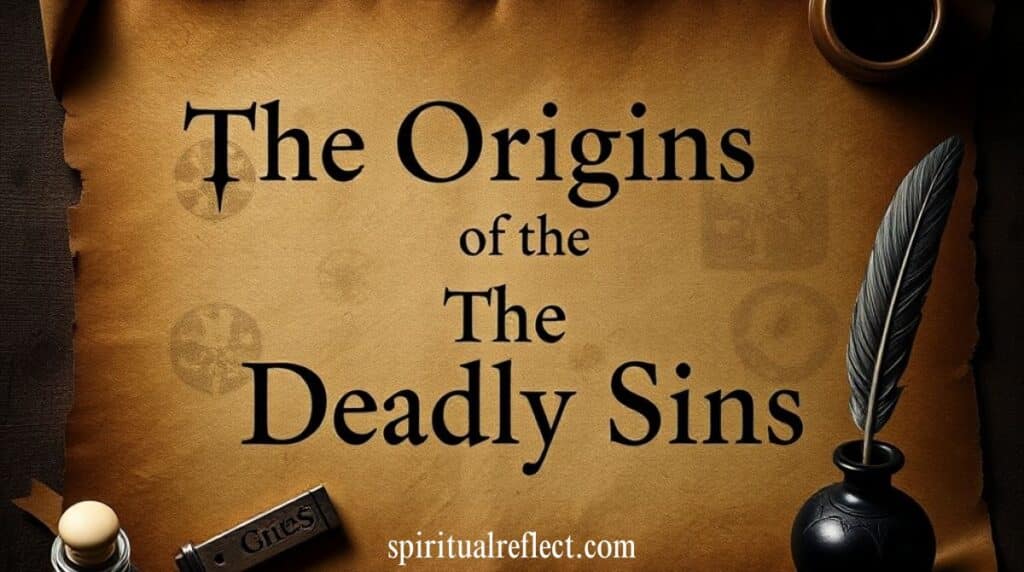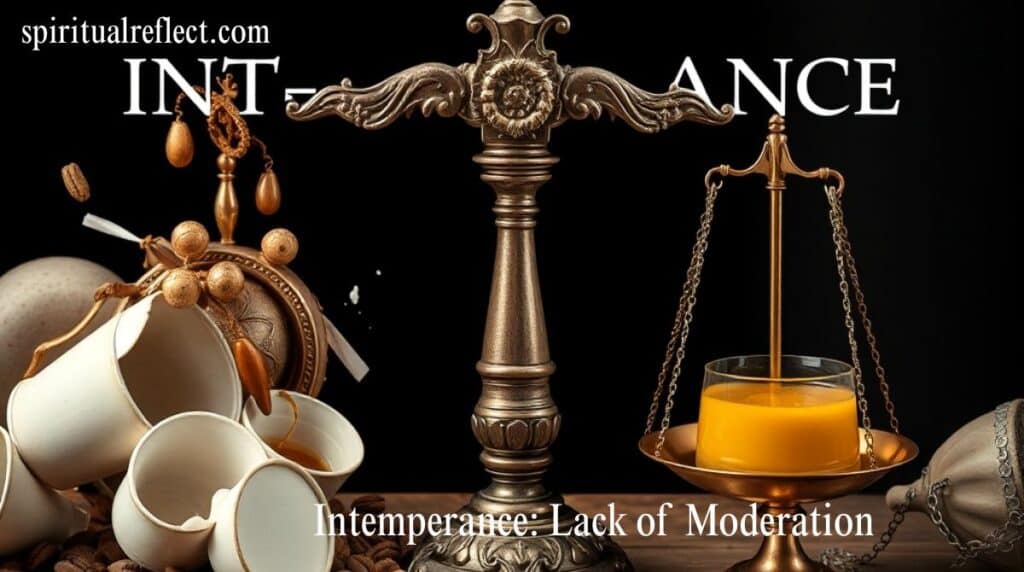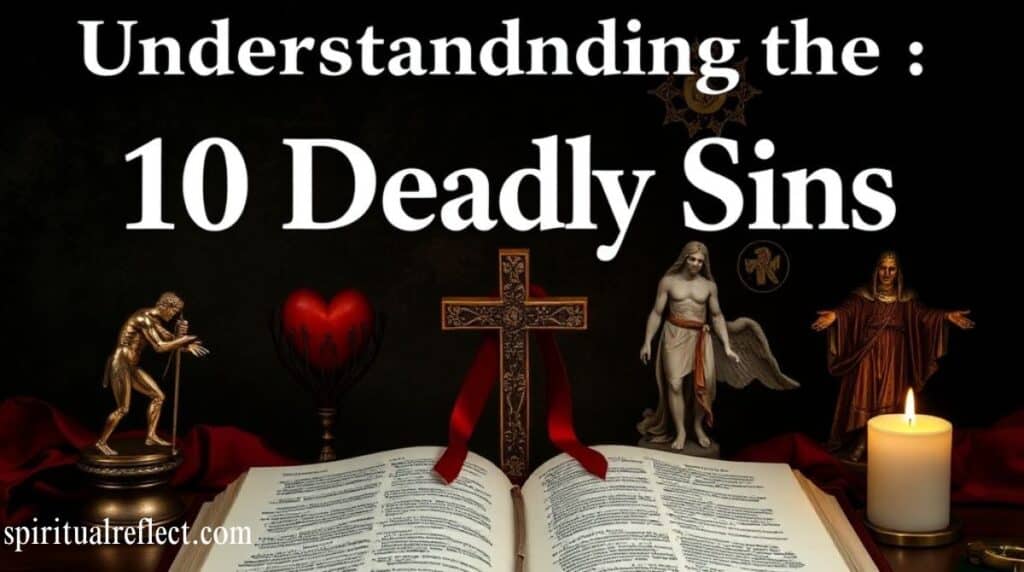The 10 deadly sins are a collection of destructive human behaviors identified within Christian teaching and rooted in the Bible. They include pride, greed, lust, envy, gluttony, wrath, sloth, deceit, intemperance, and vainglory. Unlike everyday mistakes, these sins strike at the heart of morality, corroding character and damaging relationships with God and others. Each one reflects a failure of self-control, humility, or love, making them central to understanding the Christian view of sin and spiritual discipline.
Across history, writers, preachers, and theologians have warned against these sins, but their relevance extends beyond ancient texts. In modern life, they take new shapes—pride shows up in digital narcissism, greed drives economic exploitation, and envy festers in endless social media comparisons. Their timeless presence makes them not only a theological concept but also a mirror into the struggles of everyday living.
Exploring what the 10 deadly sins are provides both warning and wisdom. The Bible doesn’t simply condemn them; it also offers clear remedies through repentance, humility, and virtue. By looking deeply into these sins, readers gain insight into human weakness and discover how scripture points to transformation. This journey uncovers practical lessons that remain urgent for faith, morality, and personal growth today.
Introduction: Why Study the 10 Deadly Sins?
Understanding sin isn’t just about memorizing rules. It’s about recognizing behaviors and attitudes that separate people from God and destroy relationships with others. The 10 deadly sins are not random; they highlight deep weaknesses in human nature that appear across cultures and throughout history.
Studying these sins through scripture provides clarity. As Proverbs 14:12 warns: “There is a way that seems right to a man, but its end is the way to death.”
This article aims to give you clear, scripture-based insights into each sin, practical ways to recognize them, and biblical remedies to overcome them.
The Origins of the Deadly Sins

The Bible doesn’t present a neat list of “deadly sins.” Instead, early Christian thinkers observed recurring patterns of sin in human life and categorized them for teaching purposes.
- Evagrius Ponticus (4th-century monk): Listed eight evil thoughts, including pride, greed, and lust.
- Pope Gregory I (6th century): Refined these into the famous “Seven Deadly Sins.”
- Later traditions: Expanded the list to ten, adding deceit, intemperance, and vainglory.
Biblical Roots
The Bible condemns sinful behaviors in many places:
- Proverbs 6:16-19 – Lists seven things the Lord hates, including lying and pride.
- Galatians 5:19–21 describes “works of the flesh” such as envy, wrath, and drunkenness.
- Colossians 3:5-8 – Calls believers to put away greed, anger, slander, and deceit.
These verses show that the concept of deadly sins isn’t artificial—it grows directly from biblical teaching.
The 10 Deadly Sins Explained
Each sin reveals something about human weakness. Left unchecked, they lead to moral corruption, a broken community, and separation from God.
Below, we’ll unpack each of the 10 deadly sins, drawing from scripture, theology, and real-world application.
Pride: The Root of All Sin
Pride is often called the original sin. At its core, pride is an inflated ego—placing oneself above God and others.
- Biblical Evidence:
- “Pride goes before destruction, a haughty spirit before a fall.” (Proverbs 16:18)
- “God opposes the proud but gives grace to the humble.” (James 4:6)
- Modern Examples:
- Refusing correction because “I know best.”
- Obsession with personal achievement or recognition.
- Spiritual Danger: Pride blinds people to their need for God’s grace. It isolates and hardens the heart.
- Counter Virtue: Humility. Jesus modeled this by washing His disciples’ feet (John 13:14-15).
Greed: The Hunger That Never Ends
Greed isn’t just wanting wealth. It’s an obsession with material possessions, power, or status at the expense of spiritual life.
- Scripture:
- “Watch out! Be on your guard against all kinds of greed; life does not consist in an abundance of possessions.” (Luke 12:15)
- “The love of money is the root of all evil.” (1 Timothy 6:10)
- Signs of Greed:
- Hoarding resources while ignoring the needy.
- Compromising morals for profit.
- Case Study: Financial scandals like Enron or Ponzi schemes reveal greed’s destructive power—not just for individuals, but entire societies.
- Counter Virtue: Generosity. Acts of giving break greed’s grip on the heart.
Lust: Desire Out of Control
Lust distorts God’s gift of sexuality. Instead of intimacy and love, it turns people into objects of consumption.
- Scripture:
- “Anyone who looks at a woman lustfully has already committed adultery with her in his heart.” (Matthew 5:28)
- “It is God’s will that you should avoid sexual immorality.” (1 Thessalonians 4:3–5)
- Reality Check: Modern media, pornography, and hookup culture magnify lust’s influence.
- Consequences: Broken marriages, addiction, and spiritual emptiness.
- Counter Virtue: Chastity and self-control.
Envy: Resentment in the Heart
Envy poisons relationships. It’s not just wanting what others have—it’s resenting them for having it.
- Scripture:
- “A heart at peace gives life to the body, but envy rots the bones.” (Proverbs 14:30)
- “For where envy and selfish ambition exist, there will be disorder and every vile practice.” (James 3:16)
- Examples:
- Workplace jealousy leading to sabotage.
- Family conflict over inheritance.
- Counter Virtue: Contentment and kindness.
Gluttony: When Enough Is Never Enough
Gluttony is more than overeating. It’s excessive indulgence in food, drink, or even entertainment—seeking satisfaction outside God.
- Scripture:
- “Do not join those who drink too much wine or gorge themselves on meat.” (Proverbs 23:20–21)
- “Their god is their stomach.” (Philippians 3:19)
- Modern Angle: Fast food culture, symptom-watching, and consumer excess all reflect gluttony.
- Counter Virtue: Temperance. Practicing moderation honors God’s provision.
Wrath: Anger Out of Control

Anger itself isn’t sinful. Wrath is anger that consumes, destroys, and refuses forgiveness.
- Scripture:
- “In your anger do not sin.” (Ephesians 4:26)
- “But now you must rid yourselves of all such things as these: anger, rage, malice, slander.” (Colossians 3:8)
- Examples: Domestic violence, road rage, online trolling.
- Counter Virtue: Patience and mercy.
Sloth: The Sin of Neglect
Sloth is often seen as laziness, but it goes deeper. It’s spiritual negligence—ignoring responsibilities to God and others.
- Scripture:
- “How long will you lie there, you sluggard?” (Proverbs 6:9–11)
- “If anyone is not willing to work, let him not eat.” (2 Thessalonians 3:10)
- Modern Picture:
- Symptom-scrolling while neglecting family or prayer.
- Avoiding spiritual disciplines.
- Counter Virtue: Diligence and zeal.
Deceit: Living a Lie
Deceit includes lying, manipulation, and misrepresentation. It destroys trust—the foundation of all human relationships.
- Scripture:
- “The Lord detests lying lips, but He delights in people who are trustworthy.” (Proverbs 12:22)
- “Do not lie to one another.” (Colossians 3:9)
- Examples: False advertising, cheating in exams, and political corruption.
- Counter Virtue: Truthfulness.
Intemperance: Lack of Moderation

ONLY Intemperance means failing to exercise self-control, whether in speech, habits, or desires.
- Scripture:
- “Everyone who competes in the games goes into strict training. They do it for a crown that will not last.” (1 Corinthians 9:25)
- “The fruit of the Spirit is… self-control.” (Galatians 5:22–23)
- Everyday Example: Explosive temper, overspending, reckless lifestyle.
- Counter Virtue: Discipline.
Vainglory: The Empty Pursuit of Fame
Vainglory is craving recognition, applause, or admiration for the wrong reasons.
- Scripture:
- “Be careful not to practice your righteousness in front of others to be seen by them.” (Matthew 6:1)
- “Let not the wise boast of their wisdom… but let the one who boasts boast about this: that they understand and know me.” (Jeremiah 9:23–24)
- Modern Examples:
- Chasing social media likes.
- Politicians prioritize image over integrity.
- Counter Virtue: Authenticity and humility before God.
The Deadly Sins in Today’s World
These sins aren’t relics of ancient times. They shape modern life:
- Pride fuels narcissism in digital culture.
- Greed drives corporate scandals and global inequality.
- Lust saturates entertainment and advertising.
- Envy thrives on social media comparison.
- Gluttony mirrors consumer excess and symptom culture.
- Wrath escalates online hate speech and violence.
- Sloth disguises itself in endless distraction.
- Deceit undermines trust in institutions.
- Intemperance reveals itself in addictions.
- Vainglory dominates influencer culture.
Biblical Remedies: Virtues Against the Sins
The Bible never leaves believers without hope. For every deadly sin, there’s a God-given virtue that counters it.
| Deadly Sin | Counter Virtue | Biblical Support |
|---|---|---|
| Pride | Humility | Philippians 2:3 |
| Greed | Generosity | Acts 20:35 |
| Lust | Chastity | 1 Thessalonians 4:3 |
| Envy | Contentment | Hebrews 13:5 |
| Gluttony | Temperance | Titus 2:12 |
| Wrath | Patience | James 1:19–20 |
| Sloth | Diligence | Romans 12:11 |
| Deceit | Truthfulness | Ephesians 4:25 |
| Intemperance | Self-control | Galatians 5:22–23 |
| Vainglory | Authenticity in Christ | 2 Corinthians 10:17 |
Conclusion
The answer to what the 10 deadly sins are is more than a simple list of wrong actions. There are deep flaws in the human heart that lead people away from God and damage relationships with others. Pride, greed, lust, envy, gluttony, wrath, sloth, deceit, intemperance, and vainglory reveal how easily human desires can turn destructive when left unchecked.
Knowing what the 10 deadly sins are helps believers recognize these dangers and fight against them with humility, self-control, and faith. The Bible not only warns about their consequences but also shows a better way through Christ. Choosing virtues like generosity, patience, and honesty leads to freedom and peace. By understanding these sins, anyone can grow closer to God and live with greater purpose in today’s world.
FAQs
1: What are the 10 deadly sins in the Bible?
The 10 deadly sins are pride, greed, lust, envy, gluttony, wrath, sloth, deceit, intemperance, and vainglory.
2: Are the 10 deadly sins directly listed in the Bible?
No. The Bible condemns these sins individually, but the list was shaped by early Christian writers like Evagrius Ponticus and Pope Gregory I.
3: Why are the 10 deadly sins considered dangerous?
They are seen as “root sins” that lead to many other sinful actions and weaken a person’s relationship with God.
4: How can someone avoid the 10 deadly sins today?
By practicing the opposite virtues—like humility, generosity, patience, and self-control—while seeking God’s guidance through prayer.
5: Are the 10 deadly sins still relevant in modern times?
Yes. They appear in new ways, such as social media pride, consumer greed, online envy, and unchecked anger in digital spaces.

Rana Ahmad is the creator of Spiritual Reflect, where she shares insights on personal growth, mindfulness, and meaningful living to inspire a more intentional life.







